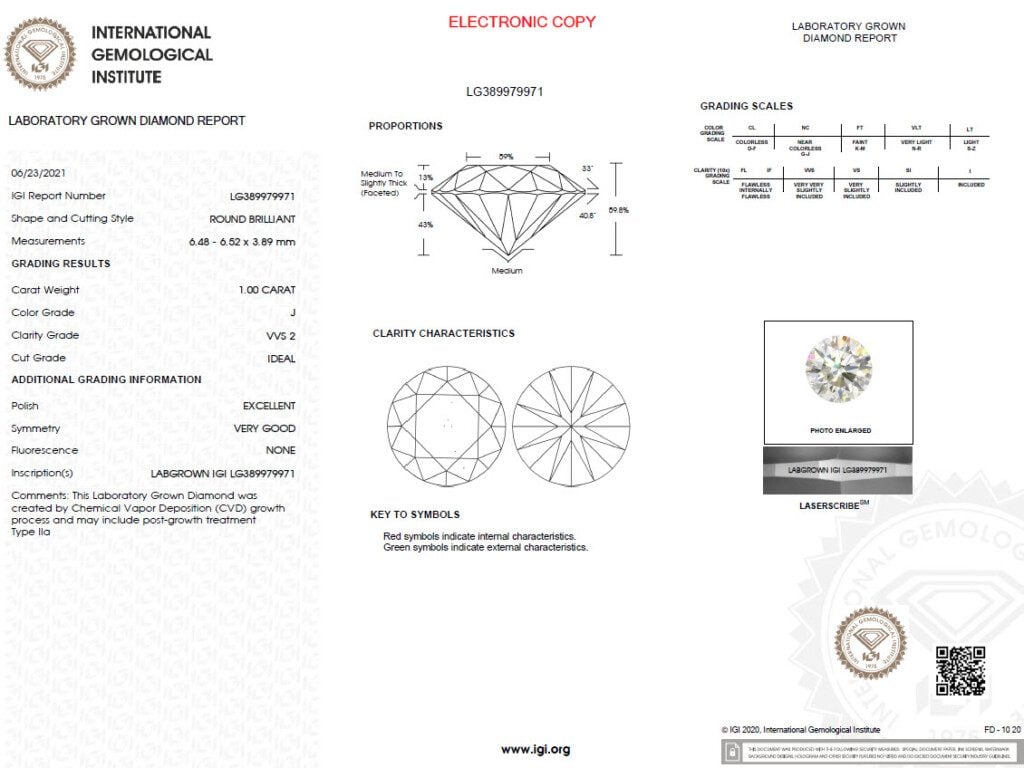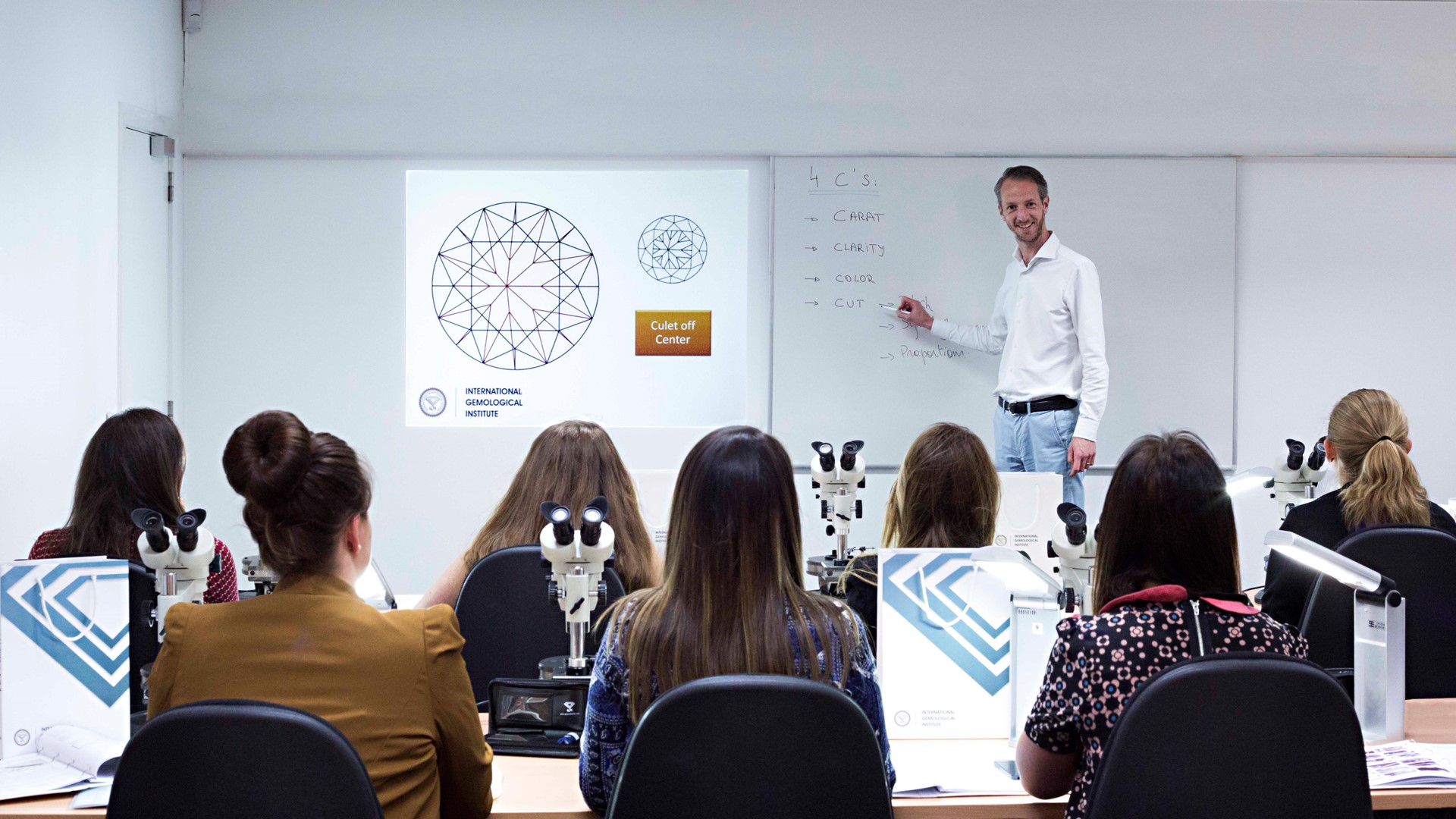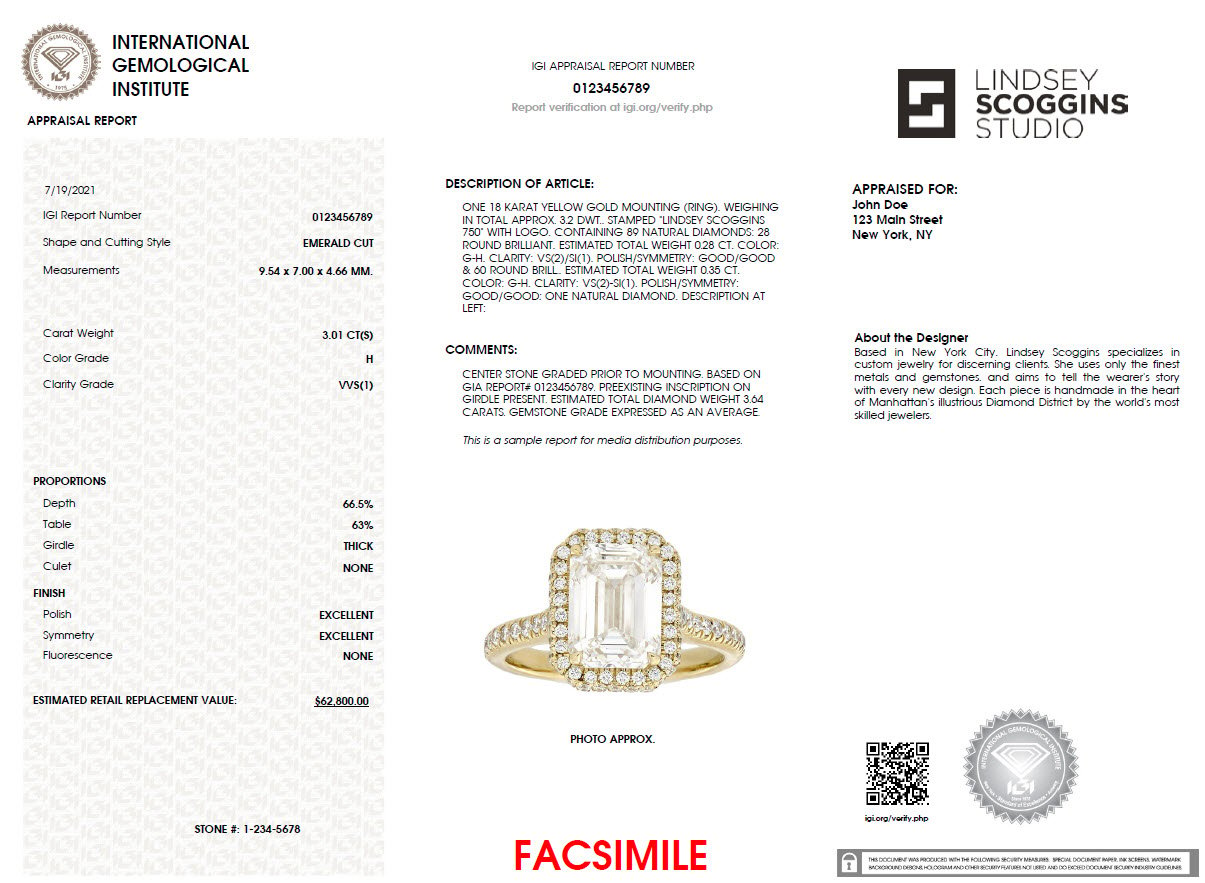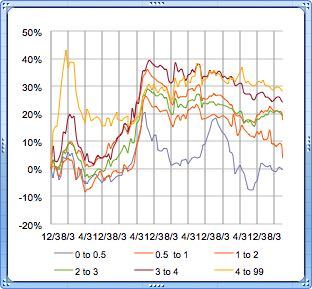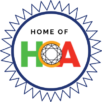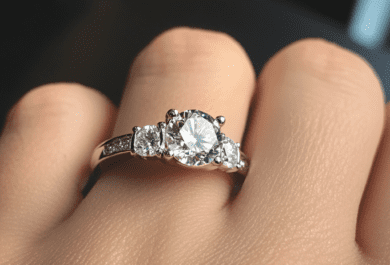ISO Accreditation for Natural and Lab Grown Diamonds
IGI was the world’s first gemological laboratory to hold ISO accreditation in both natural and lab grown diamond grading. The Organization for International Standardization 17025 laboratory competence certification is considered the single most important standard for calibration and testing laboratories across the globe.
Offered in different formats to serve consumer needs across different worldwide markets, every grading report is issued according to strict international standards, with security features to prevent duplication.
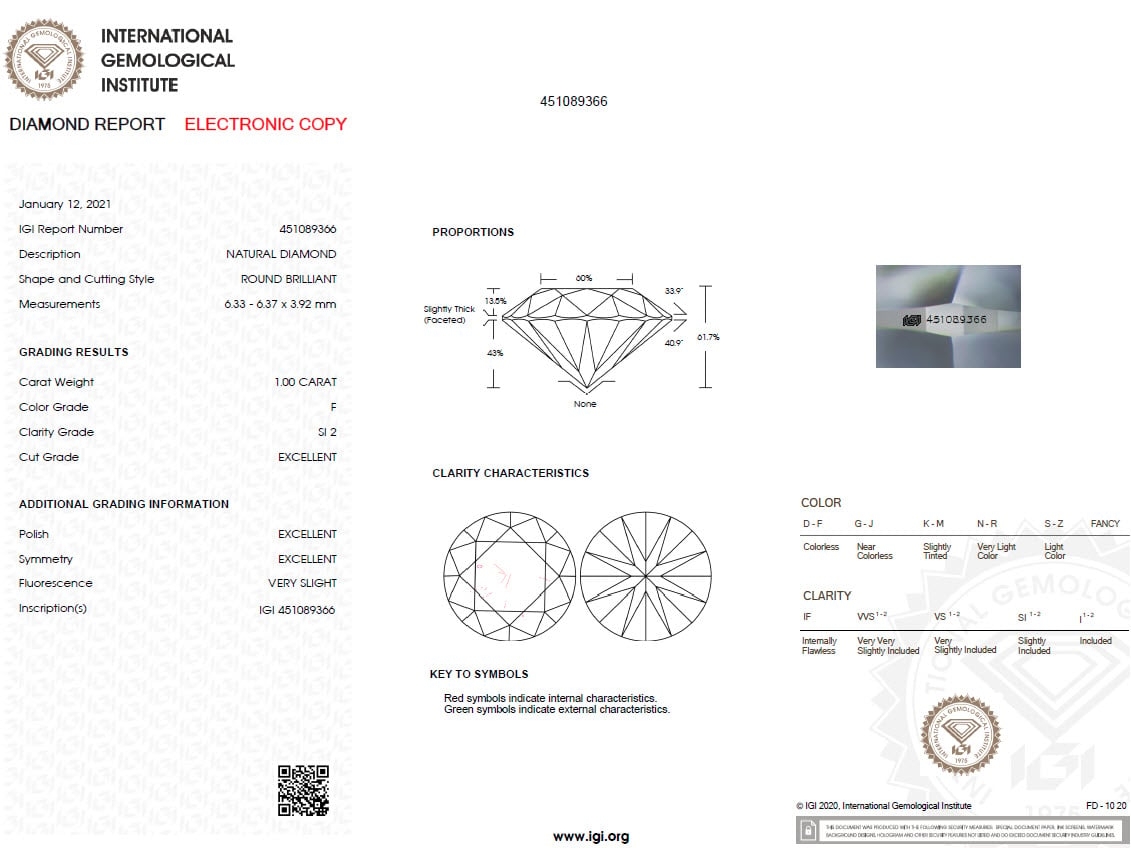
Jewelry Grading
IGI is the largest gemological organization to grade finished jewelry, issuing millions of reports annually. This sets them apart from the other major laboratories because consumers tend to purchase finished jewelry far more than loose gemstones. Ultimately, IGI is engaged with the grading of far more items that reach consumers’ hands than any other institute.
The grading and appraising jewelry is more complex than loose gemstone grading. After grading millions of carats of gemstones mounted in jewelry, IGI has developed techniques for providing accurate and impartial assessments of total carat weight, color, clarity, nature of origin, precious metal content and other details for finished jewelry pieces. Without disassembling heirlooms or complex pieces, IGI performs thorough, objective analysis of finished jewelry items.
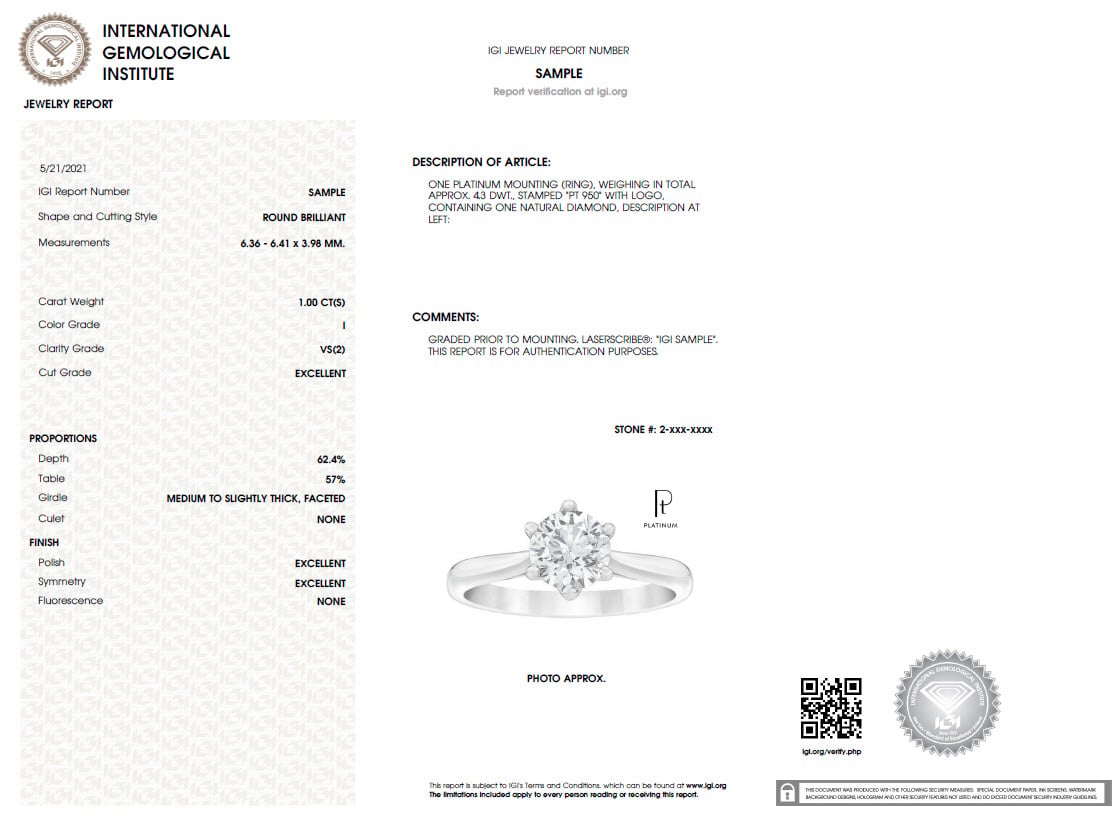
Consumer Services
In addition to professional services, IGI offers a variety of services to consumers:
Diamond, Gemstone and Jewelry Grading
Consumers are welcome to send loose diamonds or gemstones for grading. They are also invited to send finished jewelry in for grading or full independent appraisal.
Jewelry Appraisals
IGI does not buy, sell, or trade gemstones or jewelry. This neutrality permits unbiased, accurate appraisals, appraisal-updates, and identification reports. IGI appraisers are accredited by the American Society of Appraisers (ASA) and continue their education by attending courses and conferences each year. A Jewelry Appraisal Report identifies and fully describes the gem or jewelry article, with maximum retail replacement value calculated for insurance purposes.
Diamond Screening Services
IGI screens millions of small diamonds for jewelry manufacturers, separating lab grown from natural for use in different applications. They offer this service to consumers as well, for loose or mounted diamonds. Every diamond submitted is screened using state of the art technologies to determine naturally mined, laboratory grown or simulant origin.
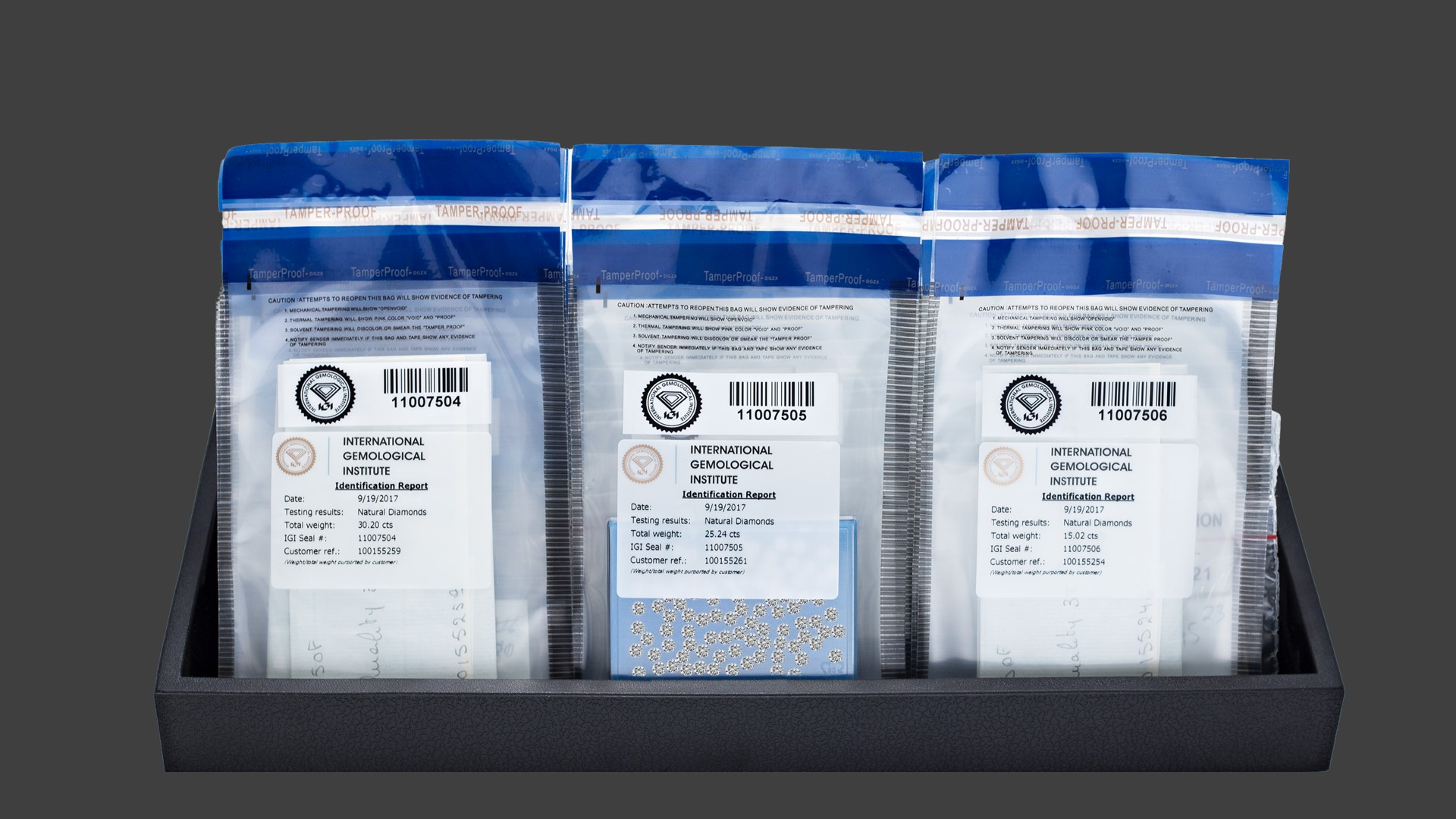
Registration & Recovery Service
Consumers can register jewelry in IGI’s database in the interest of recovery if damaged, lost, or stolen. After the registration is activated, IGI’s toll-free number can be used to report loss, theft, or damage covered by insurance. If a piece is destroyed, IGI provides a printed report for the consumer’s insurance company, describing the article of jewelry in detail, with a representative photograph. If the registered item was appraised by IGI, a maximum retail replacement value for insurance purposes will be included. If lost or stolen IGI will alert jewelry industry partners equipped to provide local authorities with details about the piece.
Is IGI the Best?
The world’s most recognized diamond grading institutes are GIA, with 11 grading locations and 8 schools of gemology, and the International Gemological Institute (IGI), with 20 grading locations and 14 schools of gemology. In the United States the Gem Certification and Assurance Lab (GCAL) are also widely recognized.
These three institutes have much in common, but also specialize in different areas. You can get information on all of them on PriceScope’s education page covering Diamond Certification.

